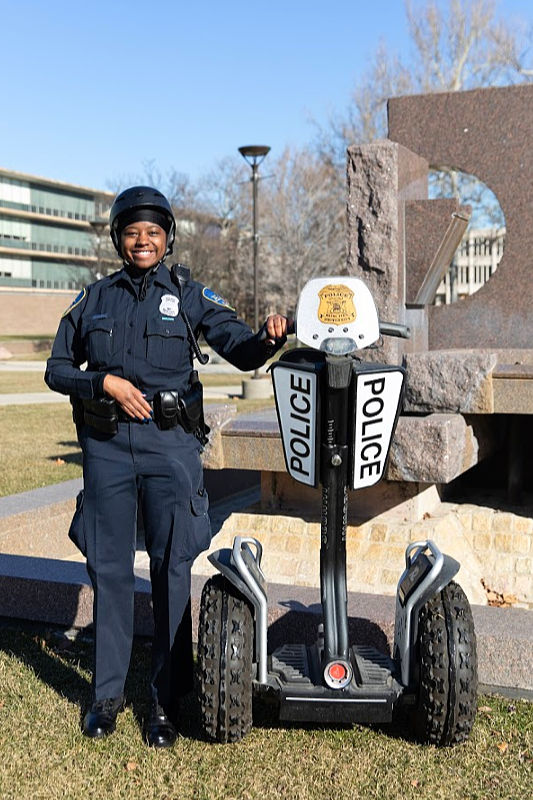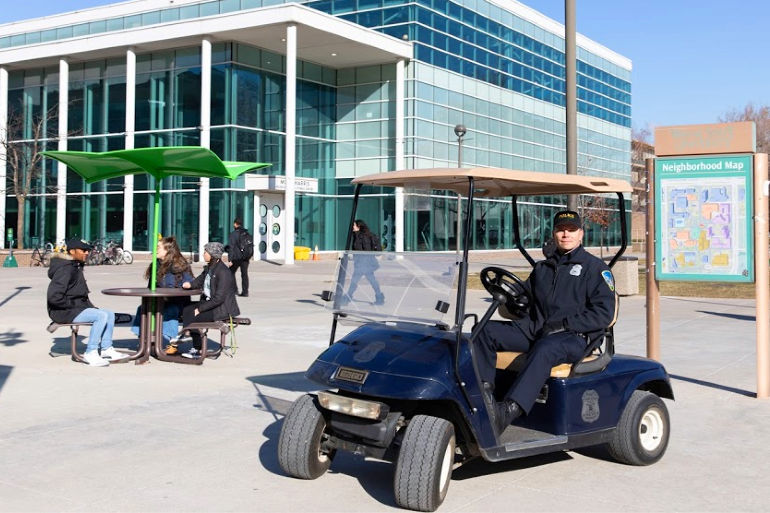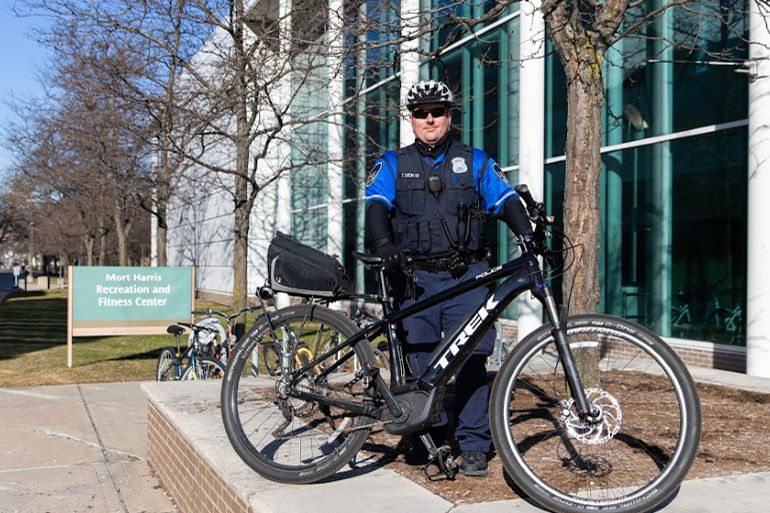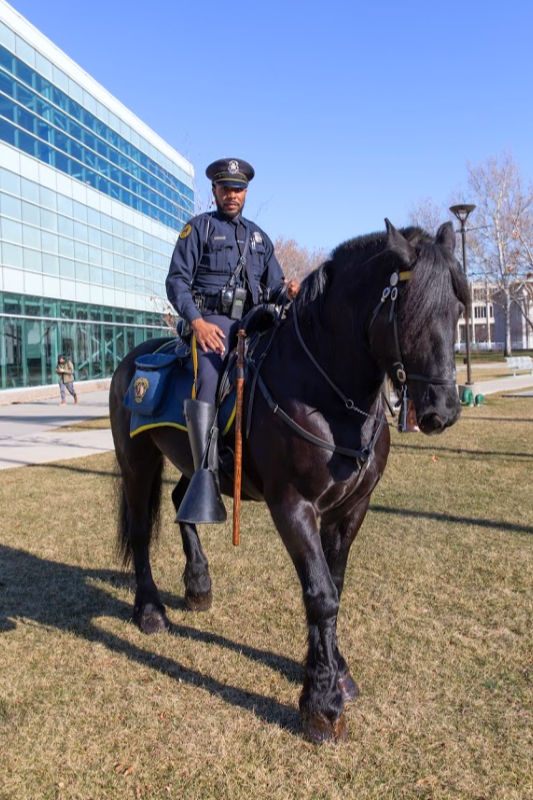Community policing provides opportunities to connect
A typical day on campus includes an abundance of pedestrian traffic as students, staff and visitors make their way to classes, offices, parking lots and events.
Mixed in with the flood of travelers are horses, golf carts, Segways, bicycles and SUVs navigated by five law enforcement officers comprising Wayne State’s elite campus community officer program.

Ofc. Johnetta Williams
Wayne State Chief of Police Anthony Holt launched the program in the fall of 2017. “We saw a need to foster and strengthen relationships between students and staff and the officers of our department. This effort is a ‘win-win’ for both the campus community and our department police officers,” said Holt.
Implementing the program has required a commitment by Wayne State University’s Police Department (WSUPD) to assign officers on campus streets and buildings patrol on a 24/7 basis. Though all of WSUPD’s 72 officers focus first on the immediate campus area, as patrol areas have expanded throughout the Midtown area, more demand has been placed on the department’s personnel and available resources.
“It’s important to understand that our officers are committed first and foremost to students and staff, ensuring that their campus is safe,” noted Holt. “Our five community police officers stay within the square-mile area of campus — not leaving it for outside calls. This is exclusively their patrol area.”

Ofc. Joseph Vadnais
The community officers focus on crime prevention and problem-solving through the establishment of partnerships among the university police, students, staff and campus visitors. Achieving effective partnerships with multiple groups requires interactions and relationship-building on both sides, and a strong presence on the part of community officers.
"We believe it’s imperative to put our students, staff, faculty, visitors and neighboring community members first,” said Campus Community Officer Johnetta Williams. “This goal is accomplished through continuous collaboration and partnerships with the community and regularly attending community engagement meetings to gather insights about the needs of our community and members.”

Ofc. Troy Eaton
Campus Community Officer Joseph Vadnais believes there are two important components that contribute to the success of the program. “The relationships formed with the community as a result of the program are fostered through our visibility and accessibility,” said Vadnais. “We make every effort to interact with students and staff, hoping that they’ll be comfortable reaching out to us at any time.”
Troy Eaton, campus community officer, echoed the importance of visibility and accessibility, adding that his unit also is an information provider.
“During our daily patrols, we approach people who look like they’re lost — maybe studying a campus map — and offer assistance to them in locating a building or other destination," Eaton said. "We are always observing the campus surroundings and the people to make sure they’re fine or just to offer a ‘hello.’”

Ofc. Brandon Murphy and Andre
The campus community officers, also including Mark Newton and Brandon Murphy, perform routine tasks as well as special event activities. Mobility on campus is facilitated through various resources that require special training to perform necessary tasks throughout a day of patrolling.
Officer Murphy of the WSUPD mounted division rides atop Andre, a 1,900-pound Percheron draft horse; Officer Williams maneuvers through twists and turns on campus aboard a Segway; and officers Eaton, Newton and Vadnais ride mountain bikes. All of the officers also access golf carts and cruisers.
The main mode of transportation, however, is foot power, covering the campus step by step.
“We rely on ground-level patrolling, which helps us maintain that necessary one-on-one contact and communication with the public,” Vadnais remarked. “We’re here to communicate with students, employees and visitors on campus — always prepared to assist when called upon.”
A typical day’s regimen includes some of the following routine tasks:
- Crosswalk detail during high traffic times at busy intersections such as Anthony Wayne Drive and Warren Avenue. Officers ensure the safety of pedestrians and enforce traffic regulations with motorists.
- Building walk-throughs at numerous sites to determine security at each location, including residence halls and other public buildings on campus.
- Parking structure security checks.
- Radio runs received from dispatch to various campus locations where an officer’s presence is requested.
- Traffic stops that may involve ticket writing.
Throughout the year, community officers also participate in various university activities such as:
- Student and parent orientations
- Campus tours
- K-12 school groups
- Providing security support at major events.
The campus community officers may be reached in person as they patrol the campus, or by contacting the Wayne State University Police Department 313-577-2222. For further information about the WSUPD, visit police.wayne.edu.